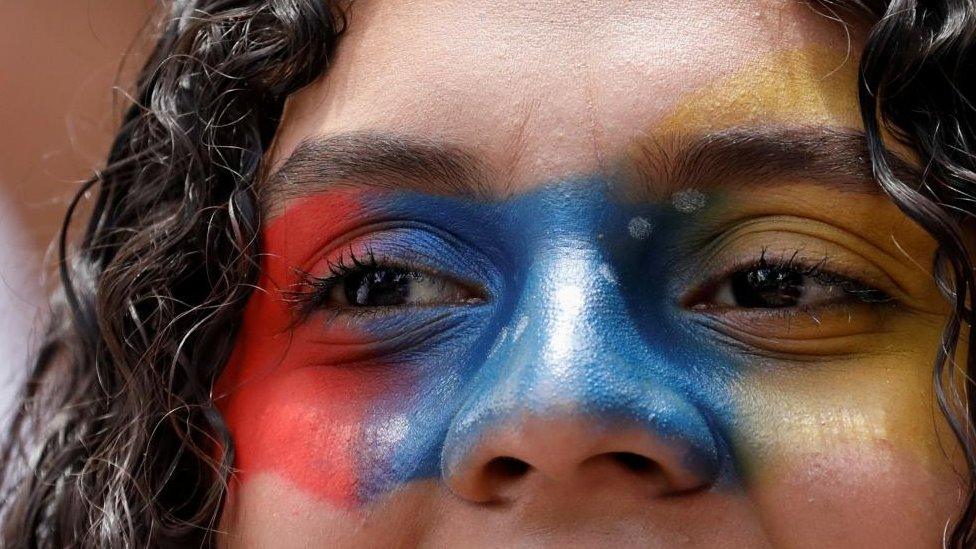Venezuela election: 'There's no opposition here, just God'
- Published
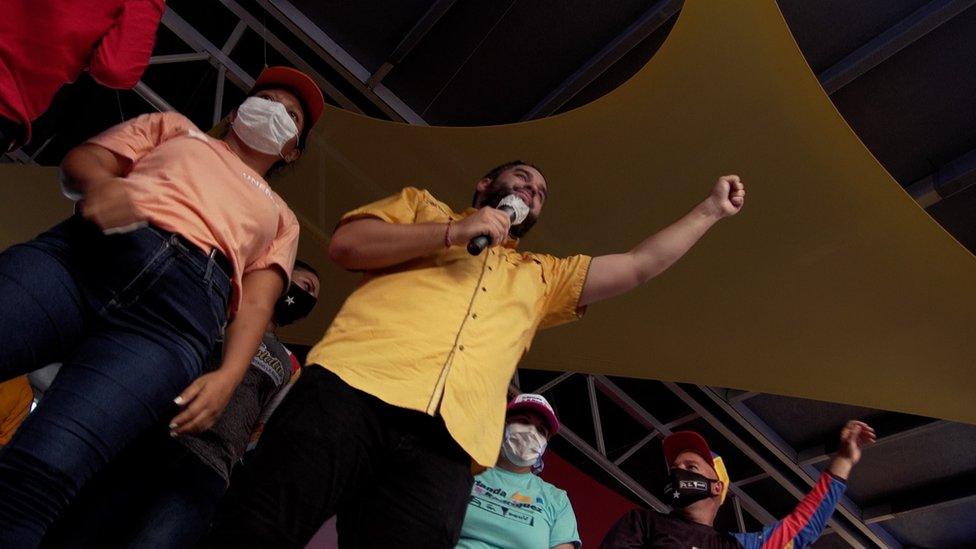
President Maduro's son Nicolasito is a shoo-in for a seat in the assembly
"We've come here to show our faces, to tell the truth, to walk the streets with you so you can tell us your problems, and we can solve them," hollered candidate Nicolás Maduro Guerra, addressing a crowd of about 500 on the Caribbean coast of La Guaira.
"I'm not coming here to promise you castles and mansions, I can promise though that we will come through this."
But coming from "Nicolasito" as he's known, might be hard for some to swallow. For Nicolasito is the president's son and under Nicolás Maduro, Venezuela's once oil-rich economy has crumbled.
Every day, millions of people in Venezuela struggle to access enough food, annual inflation is above 5,000% and about five million people have fled the country in search of jobs and more stability. The pandemic has just compounded the problems here.
Despite his family links, Nicolasito is pretty assured of victory. He's set to gain one of 277 seats in the National Assembly on Sunday, made all the easier because the opposition is boycotting the vote.
"It's the duty of all Venezuelans to exercise their vote," says supporter Darwin Quintero. "We have to fix our problems and hope the people we vote in can solve them. That's why we have elections."
Plenty in the crowd, though, are taking part begrudgingly.
"I have to vote because I have a government job," one woman said. She didn't want to be identified.
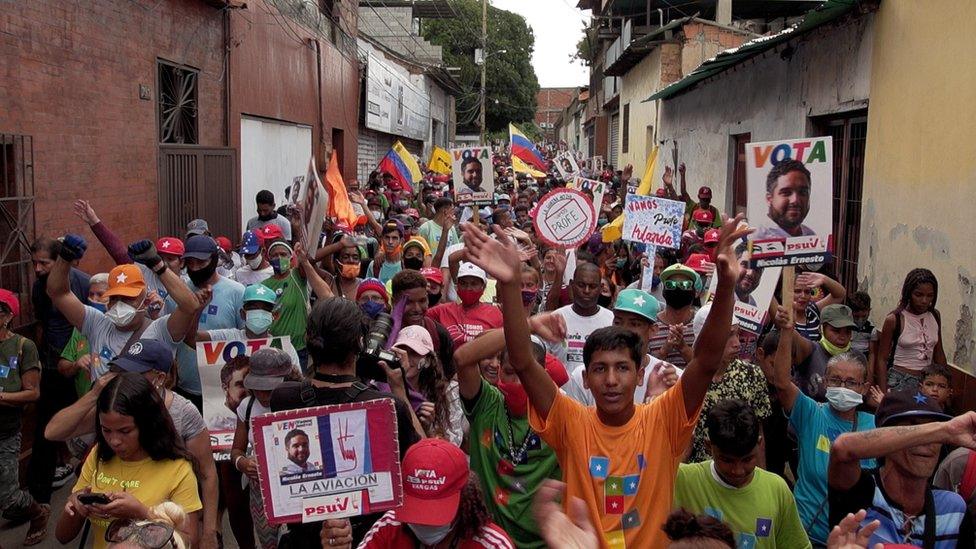
"I don't want to vote because I'm not happy with what is happening - I have two jobs, four kids and I am practically dying of hunger - I work to eat."
And what of the opposition?
"There's no opposition here, just God," she says.
Disillusioned with politics
Rewind nearly two years, and Venezuelans were hopeful of change.
It was January 2019 when Juan Guaidó, as speaker of the opposition-led National Assembly, said that he would be the man to end President Maduro's reign and lead the country to free and fair elections.
As he was citing the constitution as allowing him to take over, many countries were quick to back him as Venezuela's legitimate leader.
Tens of thousands of people came out onto the streets to support him - he had approval ratings of more than 60%. But in the time since, Juan Guaidó's popularity has plummeted to around 25%. President Maduro is still in Miraflores Palace, and the country is going nowhere. It's stalemate.

Read more on Venezuela:
Health workers in Venezuela say they have been forced to work in unsafe conditions

"We all wish the transition was quicker," says Mr Guaidó, defending the criticism he's failed to make things better.
"When you don't have water, when you have to queue three days for petrol … when your family is far from you… evidently survival is a full-time job."
But he insists he's doing what he can. Instead of participating in Sunday's vote, the opposition has decided to hold its own "consulta popular" between 7 and 12 December.
It's effectively a referendum, asking people about the country's political future.
But few seem enthusiastic - many don't really know much about it. And experts question its legitimacy as much as they do the elections.
"This is probably the worst situation for leaders and political parties of the opposition since the times of Hugo Chavez," says historian Margarita López Maya, referring to Nicolás Maduro's predecessor and man who began the leftist 'Bolivarian revolution' in Venezuela. "We are finishing the cycle of Guaidó."
So what next? Come 5 January, when the new National Assembly is inaugurated, Juan Guaidó will no longer be an elected official.
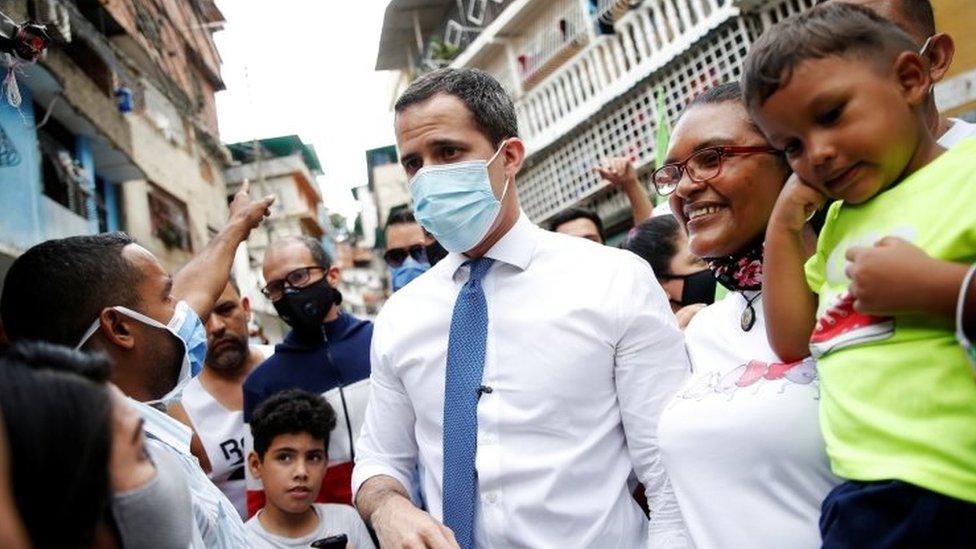
The popularity of opposition leader Juan Guaidó has been waning
But Mr Guaidó insists that the international community continues to support him. It's the importance of the international community, though, that troubles some analysts.
"You don't resolve an internal political problem with international politics unless you're talking of an invasion," says Luis Vicente Leon, President of Caracas-based polling firm Datanalisis.
"The main issue is the internal fight and that was weakened to such a point that the opposition ended up being totally dependent on international politics."
Going nowhere… for now
In the new year, Mr Guaidó runs the risk of being jailed by the Maduro administration if he continues to lead a parallel government. But he says he's not going anywhere.
"I will stay in in Caracas to defy the regime," he says. "We know the main objective of Maduro and the dictatorship is to annihilate the democratic alternative."
And what of passing the baton?
"I was chosen by the people, and then by parliament," he explains. "The important thing is the objective, not who sits in the chair. It's not just about one person, it's a movement."
López Maya is doubtful. She says the opposition and government are so far apart, most Venezuelans don't want anything to do with either side now.
"They have to understand they need to leave the polarised discourse because it's a zero-sum game in which they have lost all the time they've played."
Additional reporting by Vanessa Silva
Related topics
- Published12 August 2021
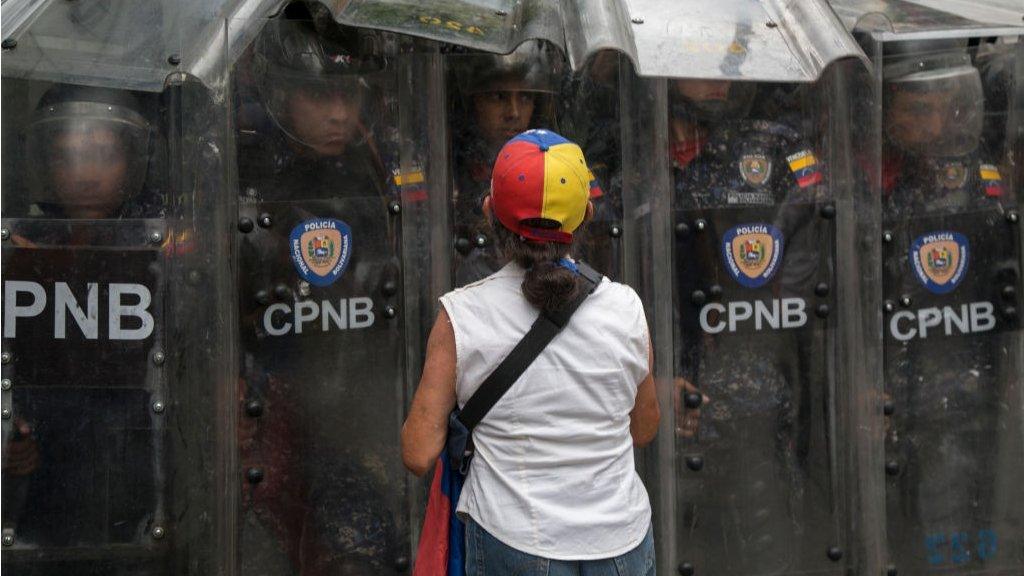
- Published9 November 2020
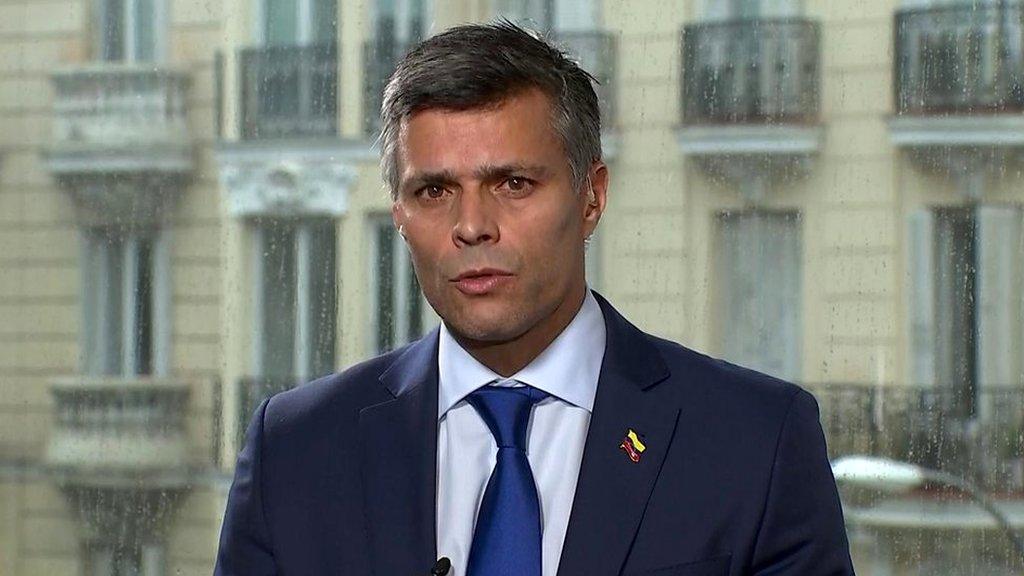
- Published5 August 2024
